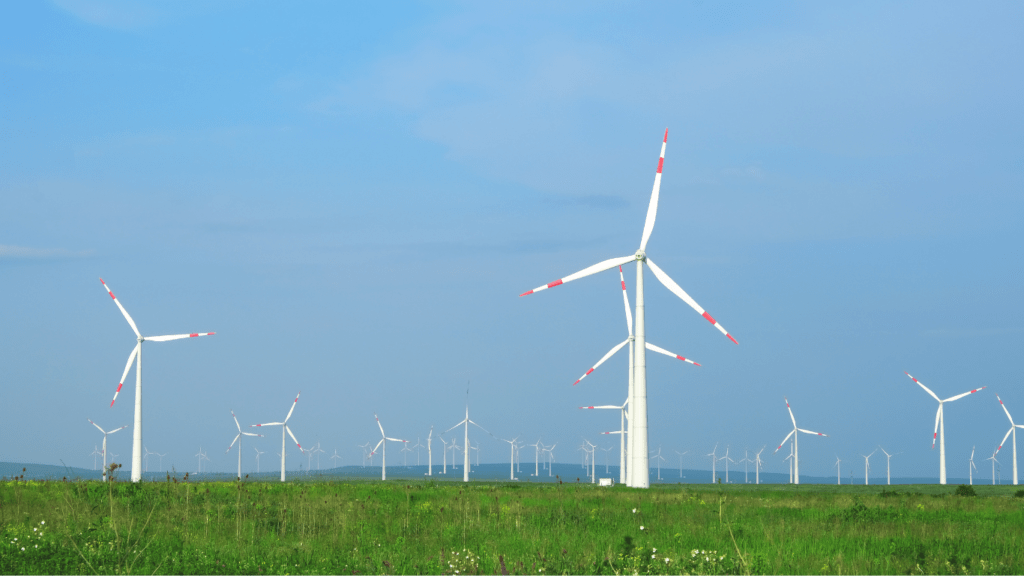Understanding Sustainable Startup Investments
Sustainable startup investments focus on supporting businesses that prioritize environmental, social, and governance (ESG) criteria. Investors seek startups that reduce carbon footprints, promote ethical supply chains, and ensure good governance practices.
In these investments, stakeholders analyze the impact on the environment and society, not just financial returns. For example, a sustainable startup might develop renewable energy solutions or create products from recycled materials. These ventures contribute to long-term ecological sustainability.
Returns from sustainable investments can be substantial. A 2020 Morgan Stanley report found sustainable equity funds outperformed traditional peers by 4.3% in the first half of 2020. This shows that green ventures can deliver strong financial performance while promoting ecological stewardship.
Investors often use ESG ratings to evaluate startups. These ratings, provided by agencies like MSCI, assess a company’s sustainability performance. High ESG ratings can attract more investors, increasing a startup’s capital.
Crowdfunding platforms also play a significant role in sustainable investing. Sites like Kickstarter and Indiegogo allow individuals to invest in eco-friendly startups. This democratizes funding, enabling more sustainable projects to gain traction.
Government policies and incentives further encourage sustainable investments. Tax credits, grants, and subsidies for green projects enhance their appeal. Investors and startups benefit from a supportive regulatory environment.
Understanding these various facets of sustainable startup investments is crucial. It ensures informed decisions that contribute to both financial success and positive environmental impact.
Factors Driving the Boom
Sustainable startup investments have surged recently. Several key factors contribute to this trend.
Environmental Awareness
Heightened environmental consciousness drives the growth in sustainable startups. People seek solutions to climate issues, pollution, and resource depletion. Businesses addressing these challenges attract more attention and funding. Investors prefer companies with clear commitments to sustainability, as these align with growing consumer demand for eco-friendly products.
Technological Advancements
Innovative technologies propel sustainable startups forward. Advances in renewable energy, waste management, and sustainable agriculture have made eco-friendly solutions more feasible and cost-effective.
For example, solar and wind technology improvements have reduced costs, making clean energy accessible. Investors find businesses leveraging these advancements more attractive, seeing them as opportunities for substantial returns.
Policy Support
Government policies and incentives significantly influence sustainable startup investments. Regulations promoting green practices create a favorable landscape for these ventures. Tax breaks, grants, and subsidies for renewable energy projects encourage investors. For instance, the U.S. federal government offers tax credits to businesses that generate clean energy, enhancing their appeal to investors. Legislative efforts to curb carbon emissions further bolster this trend by making sustainability a priority for companies.
Key Sectors Benefiting
Sustainable startup investments have surged, positively impacting several key sectors. These industries leverage innovative approaches to enhance sustainability and attract significant funding.
Renewable Energy

Renewable energy startups are receiving substantial investments. Solar power companies, for instance, are innovating with more efficient photovoltaic cells. Wind energy firms are developing advanced turbine technologies. Energy storage companies are creating high-capacity batteries to store renewable energy. The commitment to reducing carbon emissions is driving this sector’s growth.
Green Technology
Green technology is experiencing rapid advancements. Startups in this sector are focusing on electric vehicles (EVs) with improved battery life and faster charging times.
Companies developing smart grids are enhancing energy distribution efficiency. Innovations in waste management are leading to better recycling processes and reduced landfill usage. This sector benefits from combining technological innovation with environmental sustainability.
Sustainable Agriculture
Sustainable agriculture is attracting investors interested in improving food production methods. Startups are developing vertical farming techniques to maximize space usage and reduce water consumption.
Companies are using precision agriculture to enhance crop yields with minimal resource input. Biotech firms are focusing on creating pest-resistant and drought-tolerant crops. Sustainable agriculture addresses food security while minimizing environmental impact.
Major Players in the Market
Several key entities drive the boom in sustainable startup investments. They contribute significant resources and expertise to fuel the growth of green ventures.
Investment Firms
Top investment firms like:
- BlackRock
- Sequoia Capital
- Generation Investment Management
play pivotal roles in funding sustainable startups. BlackRock manages an extensive portfolio focused on ESG criteria, promoting companies committed to sustainability.
Sequoia Capital supports green technology innovators, backing electric vehicle and renewable energy startups. Generation Investment Management, co-founded by Al Gore, specializes in sustainable investments and manages billions in assets aimed at combating climate change.
Government Initiatives
Governments worldwide implement various initiatives to bolster sustainable investments. The European Union’s Green Deal mobilizes €1 trillion by 2030 to support green projects.
In the US, the Inflation Reduction Act provides substantial tax credits and incentives for renewable energy startups. Additionally, China’s 14th Five-Year Plan emphasizes green tech and sustainability, investing heavily in clean energy and sustainable agriculture advancements.
Corporate Ventures
Major corporations like Google, Microsoft, and Unilever invest directly in sustainable startups through corporate venture funds. Google’s Sustainability Fund focuses on carbon reduction technologies.
Microsoft’s Climate Innovation Fund dedicates $1 billion to support green businesses addressing climate change. Unilever Ventures targets sustainability-driven firms that align with their environmental and social objectives, fostering innovation in waste management and eco-friendly products.
Challenges and Risks
Despite the growing interest in sustainable startup investments, there are notable challenges and risks. Several factors can affect the success of these ventures. It’s crucial to identify and address these issues to ensure long-term viability.
High Initial Costs
Launching a sustainable startup can be expensive. Costs include initial investment in green technology, meeting strict regulatory standards, and obtaining necessary certifications. For example, developing renewable energy sources often requires significant upfront capital.
Regulatory Uncertainty
Regulatory environments can be unpredictable. Changes in government policies or international agreements can impact sustainable startups. Unclear regulations may lead to compliance issues. For instance, alterations in emission standards can affect green tech startups.
Market Acceptance
Achieving market acceptance is essential but challenging. Consumers and businesses may hesitate to adopt new sustainable products or technologies. It’s vital to educate potential customers on the benefits of sustainability. Advertising campaigns and awareness programs can facilitate this process.
Technological Hurdles
Technological innovation is key to sustainability, but it can face obstacles. New technologies might encounter technical problems or require extensive research and development. The risk of technological failure can deter investors. Researching market needs before innovation can mitigate such risks.
Funding Challenges
Securing ongoing funding is crucial. While initial investments may come easily, maintaining financial support can be difficult, especially for long-term projects. Crowdfunding platforms help but aren’t always enough. Building strong relationships with investors can provide more stable financial backing.
Competition
Competition in the sustainable sector is intensifying. As more startups enter the market, standing out becomes harder. Differentiating based on innovation, efficiency, and value is important. Unique selling propositions can gain a competitive edge.
Monitoring these challenges and risks is essential for the growth of sustainable startups. Preparing strategies to overcome these obstacles can lead to a more robust and resilient business model.
Future Prospects and Trends
Sustainable startup investments are set for significant growth. Analysts predict a compound annual growth rate (CAGR) of 8.2% in the sector by 2027, driven by increasing environmental awareness and regulatory support. Emerging markets are showing substantial potential as they adopt green technologies and sustainable practices.
- Green Technology Integration: Green technologies like solar panels, wind turbines, and electric vehicles are expected to dominate the market. For instance, advances in battery storage technologies help improve the efficiency of renewable energy sources, making them more viable for startups.
- Circular Economy Models: More startups are embracing circular economy models, reducing waste and enhancing resource efficiency. Companies like TerraCycle showcase how product lifecycle management minimizes environmental impact while offering competitive advantages.
- Impact Investing: Investors focus more on impact investing, with funds allocated to startups delivering measurable social and environmental benefits. According to the Global Impact Investing Network (GIIN), assets in impact investing grew by 42.4% in the last three years.
- Policy and Incentive Expansion: Governments worldwide expand policies and incentives promoting sustainability. Tax credits, green bonds, and subsidies are available for startups adhering to stringent ESG criteria, fostering innovation and market growth.
- Digital Transformation: Digital technologies like blockchain and AI enhance transparency and efficiency in sustainable startups. Blockchain ensures traceability in supply chains while AI optimizes resource management and energy consumption.
- Consumer Demand: Growing consumer demand for eco-friendly products propels sustainable startups. Consumers increasingly prioritize sustainability in purchasing decisions, as shown by a Nielsen report indicating that 73% of global consumers would alter consumption habits to reduce environmental impact.
- Collaborations and Partnerships: Startups form strategic collaborations with established companies and research institutions. These partnerships foster innovation and provide access to resources and markets, crucial for scaling sustainable solutions.
The future of sustainable startup investments looks promising with notable trends like green tech integration, circular economies, impact investing, favorable policies, digital transformation, growing consumer demand, and strategic collaborations driving the sector’s growth.

 Chief Operations Officer (COO)
As Chief Operations Officer, Ava Brodribb ensures that all aspects of the company's operations run smoothly and efficiently. With a keen eye for detail and a commitment to operational excellence, Ava oversees daily business activities, manages resources, and leads cross-functional teams to achieve the company’s goals. Her background in project management and operational strategy has been instrumental in driving the company’s success and maintaining its competitive edge in the marketplace.
Chief Operations Officer (COO)
As Chief Operations Officer, Ava Brodribb ensures that all aspects of the company's operations run smoothly and efficiently. With a keen eye for detail and a commitment to operational excellence, Ava oversees daily business activities, manages resources, and leads cross-functional teams to achieve the company’s goals. Her background in project management and operational strategy has been instrumental in driving the company’s success and maintaining its competitive edge in the marketplace.
